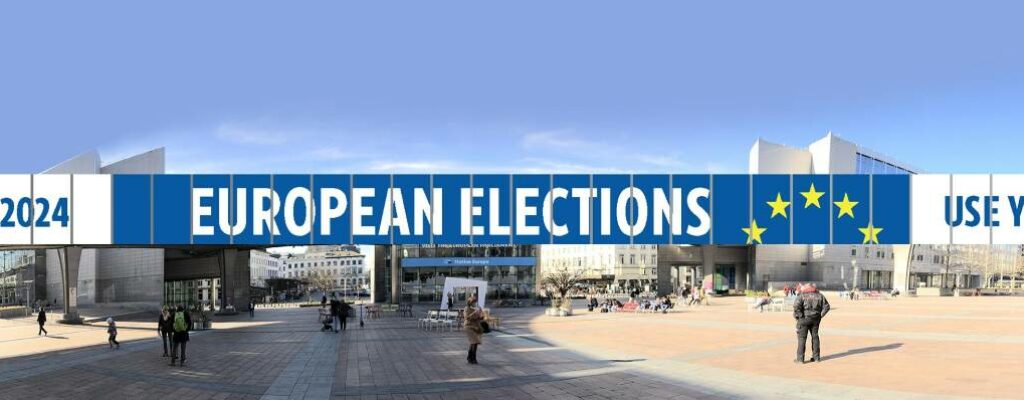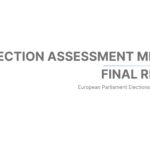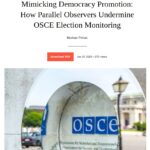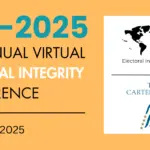
Election Assessment Mission 2024
Overall Objective
Conduct an independent assessment of the European Parliament elections across the 27 EU MS. The EAM aims to strengthen the integrity of electoral processes within the European Union, focusing on five key dimensions: equality, transparency, accountability, inclusion, and resilience.
Output
Based on international standards and regional commitments, the EAM provides:
1) a comparative analysis of EU MS elections, to identify good practices and gaps,
2) an operational set of recommendations for Election Management Bodies and EU institutions,
3) a report compiling findings and providing guiding options for improvements.
Impact
1) Enhance the cohesion of European electoral framework,
2) Safeguard the integrity of electoral processes from mal-intended interference,
3) Strengthen civic space and engagement to reinforce European democracy.
Rationale of election observation
Put the expertise of international election observers of the Election-Watch.EU network at the service of the European Union to highlight good practices and contribute to the harmonisation of electoral processes among EU Member States (MS) in complementarity with other organisations supporting democracy.
Build on the 2019 Election-Watch.EU Election Assessment Mission to highlight the diversity of election regulations and practices. Support Election Management Bodies in EU Member States in learning from each other to implement European rules and benefit from greater cohesion.
Election observation contributes to reinforcing civil and political human rights. The inclusion of citizens in the electoral process instils ownership, trust, and transparency, while involving the electorate in democratic decision-making, as reiterated by the European Commission.
Areas of focus
The assessment builds on international election observation methodology (EU / OSCE/ODIHR) capturing select aspects of the electoral cycle including:
- Preparedness
- Electoral preparedness and conduct of election administrations;
- Measures for cyber security and resilience against mal-intended interference and disinformation;
- Quality of voter registration and coordination among EU election administrations to include mobile European citizens and detect and avoid multiple entries;
- Changes, electoral legal reforms and implementation
- European electoral reforms and implementation of European legislation at EU MS level including the Digital Services Act to regulate political campaigns online; and new regulations on transparency and accountability of party and campaign finance;
- Electoral legal framework and processes at EU MS level with comparative analysis;
- Complaints and appeals procedures at EU and EU MS level;
- Inclusion
- Measures to strengthen youth and women participation and representation;
- Electoral participation of persons with disabilities and other groups at risk of exclusion;
- Civic space and provisions for international and citizen election observation in EU MS.
Conduct of an Election Assessment Mission (EAM)
The EAM comprises of a Core Team of Experts based in Brussels to coordinate the EAM and exchange with EU institutions, as well as with European political parties and CSOs. The EAM builds further on the strong network of international election observers in the 27 MS to meet with representatives of MS organisations including Election Management Bodies, institutions implementing DSA, CSOs, and political parties. The EAM compiles and analyses comparative data; publishes an EAM report with recommendations; and discusses the findings with key institutions at European and MS level.
Composition: A Core Team of Experts at HQ in Brussels and 27 MS Chapters with Focal Points. See the Election-Watch.EU EAM 2024 Team Composition.
Timing: Six weeks including three weeks for in-person meetings in Brussels (May-June 2024)
Additional Background
Election-Watch.EU is an independent, non-partisan European network of experienced international election observers and experts across the 27 EU Member States (MS).
Election-Watch.EU conducted the Election Assessment Mission (EAM) to the European Elections 2019 and presented its findings and recommendations to the Constitutional Committee of the EP (AFCO) and the European Coordination Network of European (ECNE). Election-Watch.EU adheres to the Declaration of Global Principles for Non-Partisan Election Observation and its Code of Conduct.
The organisation is a member of the European Partnership for Democracy (EPD) and jointly implements the Supporting Engagement in European Elections and Democratic Societies (SEEEDS) project, which conducts voter education webinars on the European Parliament (EP) elections, and organised the 4 July 2023 high-level EP event to present and discuss the Policy Paper “Enhancing the integrity of the 2024 European Parliament elections”, which is available in eleven European languages.
The observer network also published a policy paper on artificial intelligence’ impact on elections, conducted a comparative study regarding persons with disabilities’ access to elections as well as an impact assessment of Covid-19 on elections in Europe, and advocates for enhancing youth participation in electoral processes.
Global norms and Code of Conduct for election observers
The Declaration of Principles (DoP) for International Election Observation, which was approved within the UN framework in 2005, is an internationally recognised methodology of international election observation signed by the main actors. Election-Watch.EU has been an endorsing DoP member since 2023.
The Declaration of Global Principles for Non Partisan Election Observation and Monitoring by Citizen Organizations, also negotiated and adopted within the framework of the UN in 2012, extends and establishes a recognized methodology for election observation by civil society organizations. Election-Watch.EU (wahlbeobachtung.org) has been an endorsing DoP member since 2017.
 Election Assessment Mission Report with good practice examples published
Election Assessment Mission Report with good practice examples published
 We are hiring!
We are hiring!
 Online Roundtable on Election Monitoring Efforts to Preserve Information Integrity
Online Roundtable on Election Monitoring Efforts to Preserve Information Integrity
 Article on Mimicking Election Observation published
Article on Mimicking Election Observation published
 Two papers presented at the Electoral Integrity Conference 2025
Two papers presented at the Electoral Integrity Conference 2025